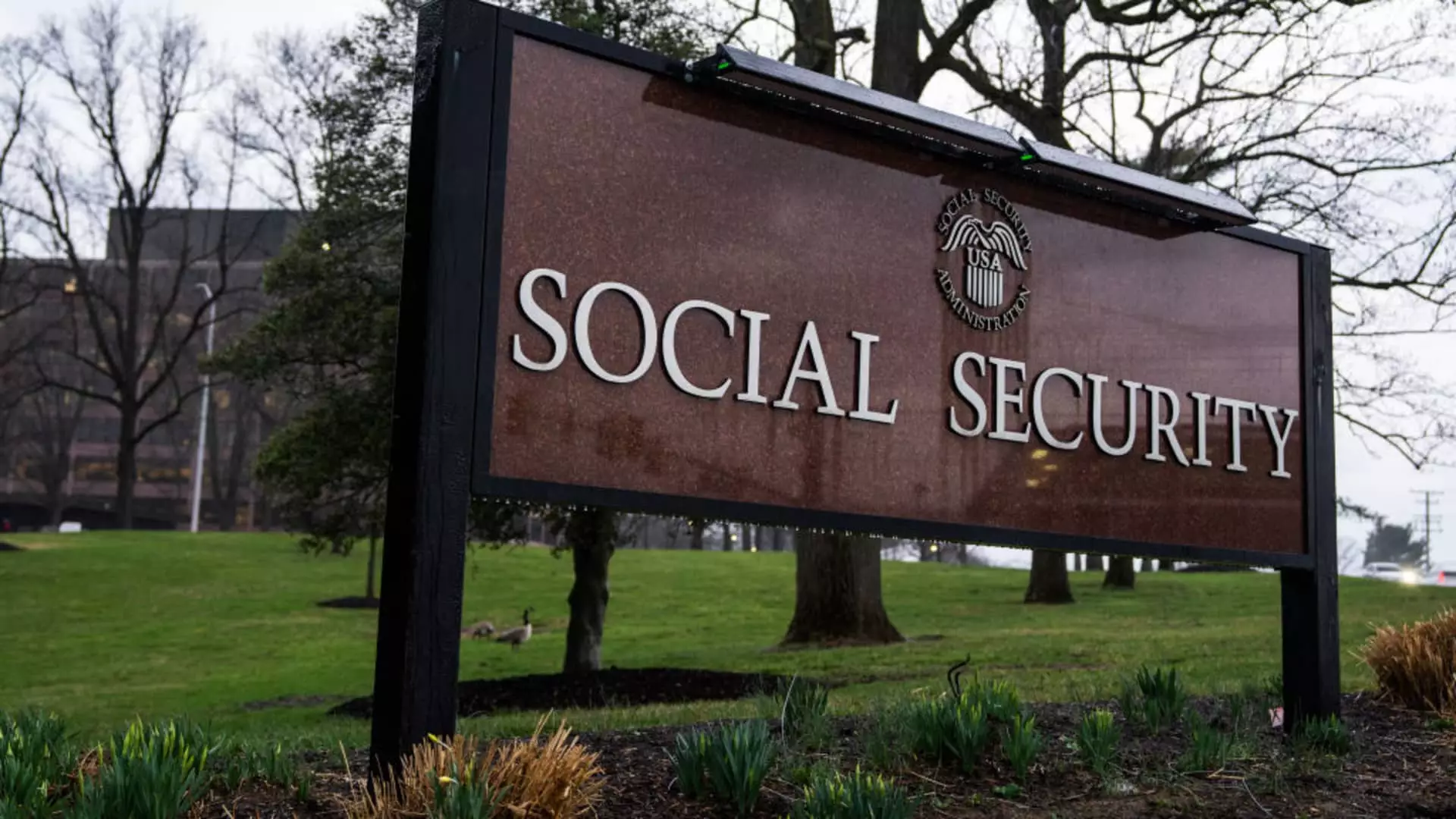The recent legal decision barring the Trump administration’s Department of Government Efficiency (DOGE) from accessing sensitive personal data at the Social Security Administration (SSA) has stirred both controversy and grave concern. Under the stewardship of Judge Ellen Lipton Hollander, the ruling aims to protect individual privacy rights amid an alarming trend of governmental overreach. The implications, however, reach far beyond privacy: they raise essential questions about the integrity and efficiency of a vital governmental service that millions of Americans rely on.
What the Ruling Means for Beneficiaries
In the wake of Hollander’s verdict, SSA acting commissioner Lee Dudek expressed apprehension regarding potential disruptions to the timely delivery of benefits. For almost nine decades, Social Security has maintained its commitment to providing consistent financial support to the elderly and the disabled. Today, that legacy faces an uncertain future. The ruling aims to restrict access not just to details of a few individuals, but it threatens to jam the trials and bureaucratic machinery meant to ensure essential services for vulnerable populations. What if, in an effort to protect data, the very people who depend on those benefits experience delays and confusion? The overreach of DOGE, helmed by Tesla’s Elon Musk, which lacks any earthy grip as an “official” agency, signals a convoluted merge of private interest and public welfare that could cost lives.
The Broader Implications of Government Overreach
The situation begs us to reconsider the agency’s role under Dudek’s management, who, by his own admission, faces considerable pressure. He claimed that the ruling could immobilize the capabilities of various departments within the SSA, triggering a precarious environment that could complicate anti-fraud efforts. When allegations of mismanagement arise at the national level, the repercussions pierce deeply into the lives of citizens, particularly the elderly and disabled who cannot afford to navigate complex bureaucracies.
It further raises the question: Is this court ruling merely a temporary maneuver, or is it a symptom of a chaotic governmental structure? Advocacy groups and watchdogs alike have pointed out that the fear of “missing paychecks” looms larger than ever. The so-called efficiency promised by initiatives like DOGE could collectively wreak havoc on the already fragile social fabric.
The Chaos Under Dudek’s Command
Critics, including notable figures like Lee Saunders of the American Federation of State, County and Municipal Employees, voice legitimate fears about Dudek’s capabilities. Observations of consistent missteps and lack of foresight imply a deeper issue: the chaos stemming from vague governmental structures inclined to overlook the human aspect of administration.
Dudek’s apology memo for past mistakes reflects not just a regretful tone but hints at the fatigue and dysfunction seeping within the SSA. Such a lament is almost tragic in the context of an organization designed to safeguard the well-being of the most vulnerable among us. If the agency heads are failing to grasp the core functions that protect Americans, it raises the moral imperative for a re-evaluation of leadership structures.
The Political Crossfire
The aftermath of the ruling turned into a fierce political battlefield, pitting Democrats against Republicans as each party seeks to extract their narrative from ongoing chaos. Democratic leaders point to a “five-alarm fire” at the SSA as a direct consequence of mismanagement and government bungling, while their Republican counterparts dismiss concerns as exaggerated fear-mongering. At the heart of this war of words, ordinary Americans stand in the crosshairs, confused about who to trust and fearing for their benefits.
The manner in which political maneuvers influence critical services exemplifies the strange vortex of partisan politics. While Republican Chairman Jason Smith seems content to paint the issues as made-up crises, the reality for most Americans is markedly different. Behind closed doors, families are deeply affected by bureaucratic dysfunction, and their voices deserve to be prioritized over political posturing.
A Looming Crisis in Social Security
As the dust settles over the ruling, participants in this broader political drama must reckon with the stark realities facing the Social Security Administration: the specter of service interruptions looms large. The very entities meant to protect American citizens are grappling with questions of their own responsibility and efficiency.
In multi-layered crises such as this, it becomes increasingly critical to recognize that political ramifications do not exist in a vacuum. Real individuals depend on these systems, and the implications are more than just numbers or statistics—they represent the livelihood of countless parents, grandparents, and disabled individuals striving to reclaim a measure of stability in their lives.
The ruling, while a protective measure for privacy, exposes a tangled web of inefficiency and negligence within the social fabric of our governance. The real challenge lies in how we, as a society, address these glaring inconsistencies to better serve those who need it most. We may find ourselves at a pivot point—one that decides the fate of Social Security and the lives intertwined with its services.

